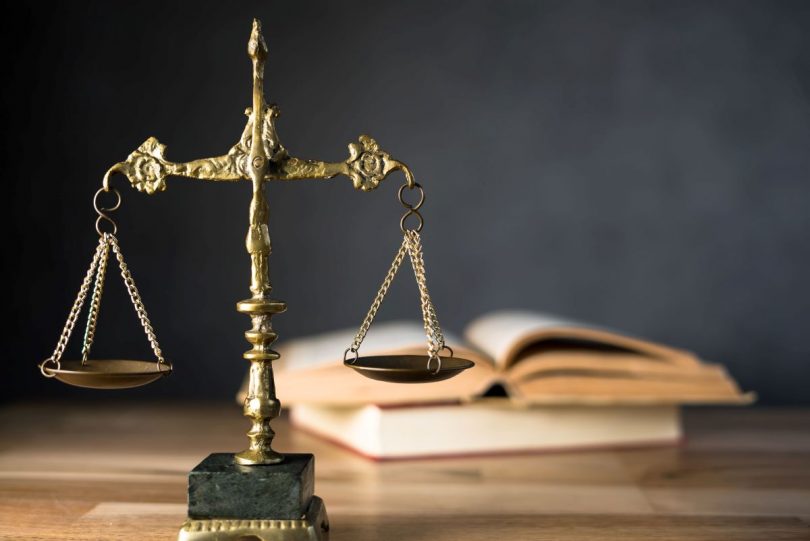| In English-speaking countries, the rights of an accused person are taken very seriously. |
| Over many centuries, laws evolved in such a way that people could not be arrested or charged without a very good reason. |
| Of course, every country needs to enforce its laws. |
| This means that police officers are needed, and so are “prosecutors” |
| (the lawyers whose job is to make criminal charges against people who break the laws, and to prove that those charges are true). |
| However, it is very important that people’s freedoms are not taken away wrongly. |
| People should not be punished unfairly, |
| and people who are accused of crimes must have the opportunity to defend themselves. |
| In some parts of the world, people can be arrested and imprisoned for long periods of time, |
| without any criminal charges being made against them. |
| One of the most important principles of justice in English-speaking countries |
| is that a person cannot be held by the police unless that person is charged with a crime. |
| This principle is known by the Latin term, “habeas corpus”. |
| According to the idea of habeas corpus, |
| the police are not allowed to detain a person for more than a certain period of time (usually, twenty-four hours), |
| unless some charge is made against the person. |
| A judge will order the release of a person who is not charged with a crime. |
| Another important feature of justice systems in most English-speaking countries |
| is that accused individuals have the right to be represented by a lawyer. |
| Most accused people want to hire an expert lawyer. |
| However, even if a person cannot afford to hire a lawyer, |
| the criminal court must provide a lawyer who will represent that person. |
| The lawyer for an accused person is required to defend that person as thoroughly as possible. |
| One of the most important aspects of justice systems in the United States and the British Commonwealth |
| is that an accused person must be fully informed of any charges made against them. |
| Also, any evidence that will be used to show the accused person’s guilt |
| must be shared with the accused person and with that person’s lawyer. |
| In this way, accused persons can challenge the truth of any evidence that will be used against them. |
| Similarly, any person who acts as a witness against an accused person |
| can be cross-examined by the accused person’s lawyer. |
| This means that the statements of a witness can be challenged by the accused person. |
| Another important element of most English-speaking justice systems |
| is that evidence must be obtained fairly. |
| Police officers cannot simply enter a person’s home to look for evidence of a crime. |
| They must first have a good reason to believe that a crime has been committed, |
| and they must obtain permission from a judge to enter the person’s property. |
| This permission is called a “search warrant”. |
| Because search warrants are required, people are free from arbitrary invasions of their property by police. |
| Finally, another important aspect of most English-speaking justice systems is that |
| trials must be held in public, where other citizens can watch the trial. |
| An accused person is not tried secretly. |
| Moreover, as discussed in another passage, |
| the accused person has the right to be tried by a jury of other free citizens. |
| All of these rules ensure that order can be maintained without taking away the freedom of innocent people. |
More English listening lessons for intermediate level:
Lesson 47: The Earth revolves around the Sun





